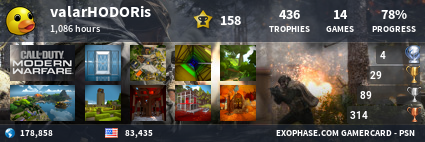some assorted stuff about progression and structure
So, there is a thing in open world games that people always praise: the moment where the introductory mission finishes, and the world opens up, leaving you free to explore wherever you want. If it's a modern/futuristic game, you probably get a phone call about where you should go next, which is usually a trigger volume that starts a cutscene and eventually fades into a mission.
I hate this moment. I hate it because it feels like I began this game playing through what is usually an expertly crafted linear experience, and am dropped into an awkward pseudo-hub-world where all of the momentum built up from the previous sequence is lost.
I wish that the moment you enter the open world you were already completely set up on what your next goal was, and all the points of interest were things you needed to do, which are all happening in the world: you can come at them from any angle and complete whatever objective they offer.
What I'm really talking about is the awkward buffer and manufactured need for additional setup that the current structure of open world games relies on. Unlike in linear games, it's so much more transparent and noticable when starting a new mission spawns in a bunch of guys and materializes a goal out of thin air, because in a linear game this stuff can be mapped to invisible triggers, and happens seamlessly.
Bethesda RPGs are closer to what I'd like to see in terms of seamlessnesss, though obviously the mission design in that case is way less complex/interesting than the average open world, and I'm not asking for every mission to be available from the start, just the first few in the story, and then the next few, split up into sequences AC1 style.
As for side diversions that aren't related to this main progression, I think I've said before that GTA's approach of mini games, little fun interactions, customization, ect. is better for a narrative-focused games than an involved side mission where some rando tells you a templar chased his cat up a tree or whatetever. (collectibles work too, any kind of low-impact not-involved stuff)
I think what i'm looking for out of AC and open world games in general is longer, more serialized stories that are less about expensive set-up cutscenes and more about seamlessly moving between experiences that are well-integrated into the game world, then advancing the plot through a cutscene, dialogue, or transition that unlocks the next set. All in all, less situations where you feel confused about what to do next, and stories that are more like TV, where it's not a very constrained movie-style arc that's been blown out to 20 or so hours, but instead something that's clearly designed and written looking at the structure of an "episode".
There's a problem with people not finishing games, but I bet there's much less of a problem with people not finishing seasons of game of thrones. I think the biggest reason for that is that most big games are definitely designed in an exhausting way: when you do have that movie-style structure, people don't feel like they've really gotten any closure until the very end, and so they feel like they're obliged to marathon-play this huge thing, and they burn out. But when it's clear that you can enjoy the story in small chunks, there's a bigger draw to just return to it every once in a while until you've finished the 'season'.
Movie-style structures can work well for shorter games, but I think AC needs to look elsewhere.
There's a problem with people not finishing games, but I bet there's much less of a problem with people not finishing seasons of game of thrones. I think the biggest reason for that is that most big games are definitely designed in an exhausting way: when you do have that movie-style structure, people don't feel like they've really gotten any closure until the very end, and so they feel like they're obliged to marathon-play this huge thing, and they burn out. But when it's clear that you can enjoy the story in small chunks, there's a bigger draw to just return to it every once in a while until you've finished the 'season'.
This is where you lost me.
AC already is designed to get closure in chunks then set up the next cliffhanger. You get a target, work through the story that pertains to that particular target, then kill that target. Ahh, closure at last.
I think AC's problem is the opposite. The mini stories that pertain to the individual Templars don't often gel together as well as the story-tellers think they do. At least in Syndicate they outlined it for you as you went: banking, political, transportation, etc before you even knew who the targets were. But the story still feels disjointed at times rather than a single story.
As a side note: I still think AC3 got it right in regards to story telling and tying the Templars to the story and together. Because, duh, you put the team together as Haytham so you already had the back-story on all of them through gameplay - not a simple database entry that no one reads until later.
I do agree with Jermaine's idea, that is how a lot of big-budget AAA games feel to me nowadays. It's not a huge problem for me, because I'm an extreme-case scenario of a gamer who has the privilege of taking care of my responsibilities and clearing three days' worth of time for doing nothing but injecting Game into my brain. Not everyone is like that, I'd wager most people are not.
I don't think the thoughts you have about how Syndicate's mini-stories fail to fit together very well goes against Jermaine's words all that much. I think when taken together, both of your thoughts actually make sense to me at once: AC Syndicate is not designed (either at all, or well ENOUGH) to take advantage of an episodic structure, which leads it to feeling like it has a lack of closure until the very end in any way. They may have tried, but it wasn't an honest attempt. This is where something like AC1 really hits hard for me. The fact that you had to go back to Masyaf after every Assassination was huge at the time. Al Mualim would tell you a huge piece of the story, always necessarily having it be some kind of cliffhanger, but not a cheap one. It made you want to play more, but it was an obvious stopping point. Same thing with finishing a Memory Block, because you would get present day Story after. Everything in AC1 was built with "zooming in" and "zooming out" in mind, with bite-sized pieces of Memories that all came together like Lego Bricks to provide closure in and of themselves, and bigger/more impactful closure once all taken together. This is one of the reasons I really, really like the Animus de-resolution at the end of every Sequence, (you know, the moment when the Animus just de-builds the entire simulation to signify you're done a Sequence?) and for some reason it felt like it was missing in Syndicate, or not very prevalent. Felt me feeling "off" about the experience.
Yeah, I know that ideally each target resolves something and feels like the end of a chapter, but in practice most of the time they feel like they're stringing you along to some larger goal or understanding. Black flag probably felt the most like that. AC1 did a really good job with making each target its own contaned event, but its long not-cutscenes and dull investigations did more than their fair share to block off any kind of momentum that could have given it.
AC3 did a good job of constantly closing loops imo. Most of the games could learn something from each other.
Heck yeah. Black Flag I think did a really great job with the "chunks of gameplay" idea, and letting you choose your own stopping point. Part of that was how self-contained each Island was in terms of Side Quests and stuff. You could clear out like, say, three Islands, Golding them to 100% and then be like, "That was nice." [exits satisfied]
AC3 did a good job of constantly closing loops imo. Most of the games could learn something from each other.
100%. And the reason why they don't or can't learn from each other rapidly is that they are (were?) developed concurrently. OF COURSE Syndicate didn't fix most of Unity's big (or detailed, depending how you like to look at it) issues because how could it? It was being developed at almost exactly the same time, practically in parallel. It's why it takes one or two whole games before fan feedback can even be taken into consideration let alone applied. AC Egypt's whole "let's extend the dev period an entire 365 days" makes me happy for that very reason: Two-year release schedule may not be enough time to develop an entirely different game, but it sure is enough time to genuinely change (AND TEST!) a great deal of it.




